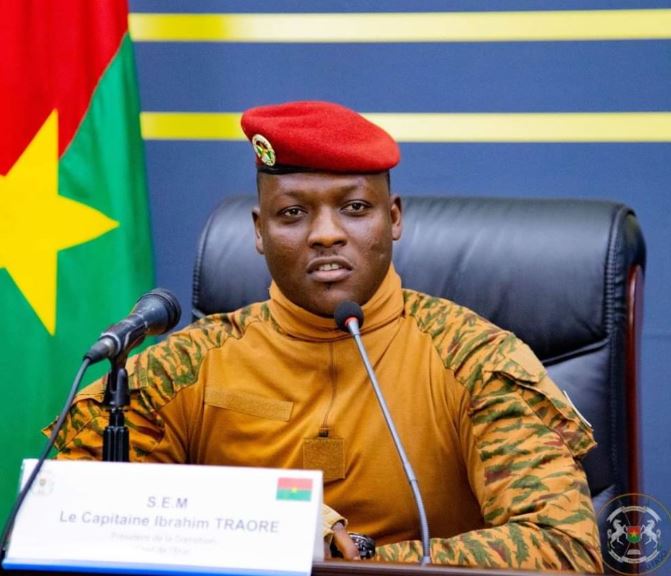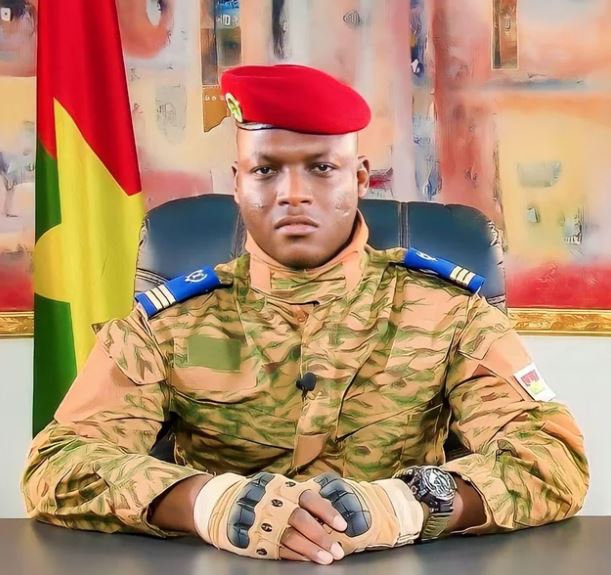### The AI Illusion: How Deepfake Videos Are Crafting a False Narrative Around Burkina Faso’s President Traoré

In a jaw-dropping revelation that blurs the lines between reality and digital deception, a wave of deepfake music videos featuring global superstars like Beyoncé and Justin Bieber have surfaced, all purportedly praising the President of Burkina Faso, Ibrahim Traoré. What appears to be a grassroots endorsement of the 37-year-old leader is, in fact, an orchestrated campaign of artificial intelligence-generated propaganda designed to elevate his profile on the world stage. As experts dissect the phenomenon, a troubling question looms: Who is really behind this digital masquerade?
Since early May, social media has been inundated with these AI-crafted music videos, showcasing popular artists seemingly lauding Traoré’s leadership. However, a closer examination reveals a chilling truth: these videos are fabricated, underscoring an alarming trend of disinformation that could skew public perception both locally and abroad. Experts have raised concerns that this coordinated effort may serve to distract from the myriad challenges faced by Traoré’s administration, casting him in a light that may not reflect the reality of his governance.

Samba Diallo Baji, a researcher specializing in disinformation at the UN University in Oslo, highlighted the implications of this trend, stating, “It’s clear we’re witnessing a coordinated campaign. While there’s no concrete evidence linking the Burkinabé government directly to these videos, their benefits are undeniable.” The notion that these deepfakes could be part of a propaganda strategy raises eyebrows, particularly given that the Burkinabé government has a history of leveraging social media influencers to bolster its image.
The creator of one such viral video, which amassed nearly two million views, confessed to utilizing AI technology to produce glorifying content for Traoré, charging clients up to $1,000 per video. This revelation adds another layer to the complex interplay of technology, artistry, and politics, revealing how a single individual can manipulate public sentiment from afar. “My motivation was that Ibrahim Traoré does what many African leaders don’t do,” he explained, capturing the paradox of a leader celebrated by a digital facade while facing dissent at home.

As the narrative unfolds, the absence of authentic grassroots support raises red flags. According to researchers, many of the accounts sharing these AI-generated videos may themselves be artificially created, complicating the landscape of public opinion surrounding Traoré. The very platforms that broadcast this content now teeter on the edge of misinformation, as users grapple with the blurred lines between reality and fabrication.
Adding fuel to the fire, a recent crackdown on foreign media in Burkina Faso has left outlets like France 24 unable to operate, further isolating the government from critical scrutiny. The military junta’s decision to suspend these media channels raises questions about accountability and transparency, especially when juxtaposed against this backdrop of digital deception.
In an age where social media can amplify voices—both genuine and artificial—this phenomenon serves as a cautionary tale about the power of technology in shaping narratives. The implications of deepfake technology extend beyond Burkina Faso; they pose a global challenge to truth and authenticity in reporting, particularly in politically charged environments.
As the world watches, the saga of Ibrahim Traoré reminds us that in the digital age, perception can quickly override reality. The allure of a charismatic leader may be irresistible, but as this unfolding story reveals, the façade can be as fragile as the technology that creates it. In a landscape rife with misinformation, the truth remains paramount, even as it becomes increasingly difficult to discern. As we navigate this new frontier, one thing is clear: the narrative surrounding Traoré is far from straightforward, and the quest for authenticity in leadership is more crucial than ever.


